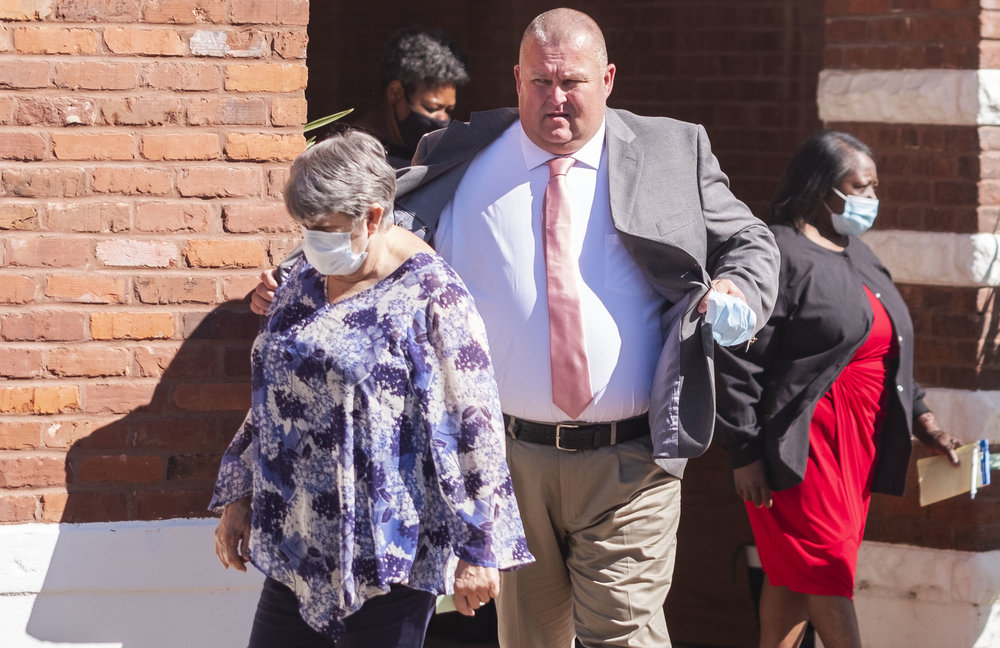
Caption
Former Washington County Sheriff's Deputy Michael Howell leaves court Wednesday followed by Helen Gilbert, right, the sister of Eurie Martin, the man Howell and co-defendants Rhett Scott and Henry Copeland are accused of murdering in 2017.
Credit: Grant Blankenship/GPB News

